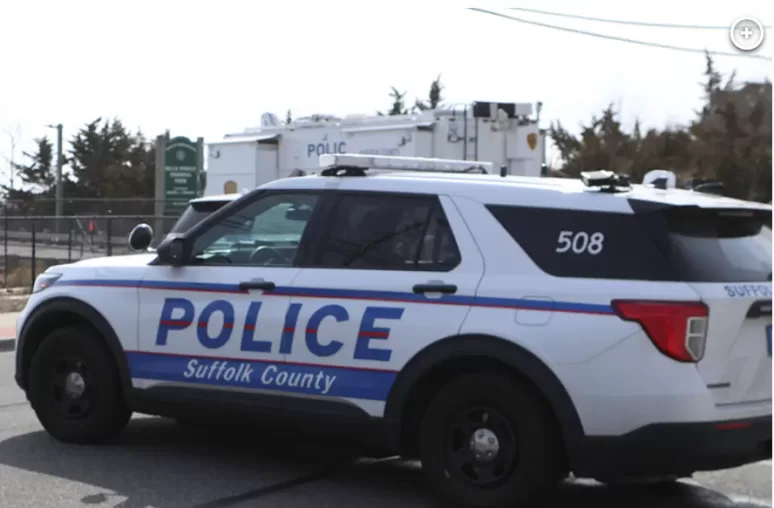The Suffolk County Police Department (SCPD) in New York is currently under scrutiny following a report by the Suffolk County Human Rights Commission (HRC) that highlights significant concerns regarding police misconduct and the transparency of disciplinary actions. The report, covering the period from March 2023 to May 2024, reveals nearly 400 misconduct complaints against SCPD officers. However, the HRC has expressed frustration over the lack of information regarding the outcomes of these complaints, particularly concerning any disciplinary measures taken against the officers involved.New York Post+1Newsday+1
Background and Oversight Expansion:
In response to nationwide calls for police reform following the murder of George Floyd, Suffolk County expanded the oversight role of the HRC in 2023. This expansion aimed to enhance civilian oversight and accountability within the SCPD. The HRC was granted the authority to intake all complaints of police misconduct, supplementing existing channels such as filing complaints with local precincts or directly with the Internal Affairs Bureau (IAB). To support this expanded role, the HRC increased its investigative staff to a total of seven investigators. New York Posthrc.suffolkcountyny.gov
Findings of the HRC Report:
The HRC’s report indicates that between March 2023 and May 2024, the commission reviewed nearly 400 misconduct complaints against SCPD officers. While the HRC concurred with the findings of the SCPD’s Internal Affairs in over 96% of the cases, it disagreed with the outcomes in 14 instances. A significant issue highlighted in the report is the lack of transparency regarding disciplinary actions taken against officers found to have engaged in misconduct. The HRC noted that it had previously had access to disciplinary outcomes, but this access was curtailed when its oversight role expanded in 2023. The commission has advocated for renewed access to this information, emphasizing its importance for effective civilian oversight and public trust. New York Post
Challenges in Oversight and Transparency:
The HRC has faced challenges in obtaining evidence and information necessary for thorough investigations. Issues such as missing body camera footage have impeded the commission’s ability to fully evaluate misconduct claims. The report criticizes the lack of cooperation and transparency from the SCPD, which undermines the effectiveness of civilian oversight. Critics argue that the HRC’s limited authority and the SCPD’s resistance to sharing information hinder efforts to hold officers accountable for misconduct. New York Post
Legal Actions and Public Records:
The SCPD’s reluctance to disclose disciplinary records has led to legal challenges. In 2021, the New York Civil Liberties Union (NYCLU) sued the SCPD for withholding misconduct records, arguing that the department’s actions violated the state’s Freedom of Information Law (FOIL). The SCPD had withheld documents regarding complaints that did not result in discipline and over-redacted others. A state judge later ordered the SCPD to turn over misconduct records to the NYCLU, emphasizing that there is no categorical exemption from disclosure for unsubstantiated allegations or complaints of police misconduct. News 12 – DefaultNYCLUJustia Law+1News 12 – Default+1
SCPD’s Response:
In response to the HRC’s report, the SCPD acknowledged the challenges in collaboration and expressed a commitment to working with the HRC to improve accountability and transparency. The department noted that the HRC agreed with their findings in over 96% of cases, suggesting a level of concurrence in the evaluation of misconduct complaints. However, the SCPD’s statement did not address the specific concerns regarding the lack of information on disciplinary actions. New York Post
Implications for Public Trust:
The issues raised in the HRC’s report have significant implications for public trust in law enforcement. Transparency in disciplinary actions is crucial for demonstrating that misconduct is taken seriously and that officers are held accountable for their actions. The lack of information on disciplinary outcomes can lead to perceptions of impunity and erode community confidence in the police. Effective civilian oversight requires access to comprehensive information to ensure that investigations are thorough and that appropriate actions are taken in response to misconduct.
Conclusion:
The Suffolk County Police Department faces critical challenges in addressing police misconduct and ensuring transparency in disciplinary actions. The HRC’s report underscores the need for improved cooperation between the SCPD and civilian oversight bodies. Addressing these issues is essential for fostering accountability, maintaining public trust, and upholding the integrity of law enforcement in Suffolk County.

## Officer Forum Links:
– [Rampant Misconduct – Various Officers](https://watchaudits.com/forums/topic/rampant-misconduct-various-officers/)
- https://www.youtube.com/watch?v=7Zfx5ORBX4I

